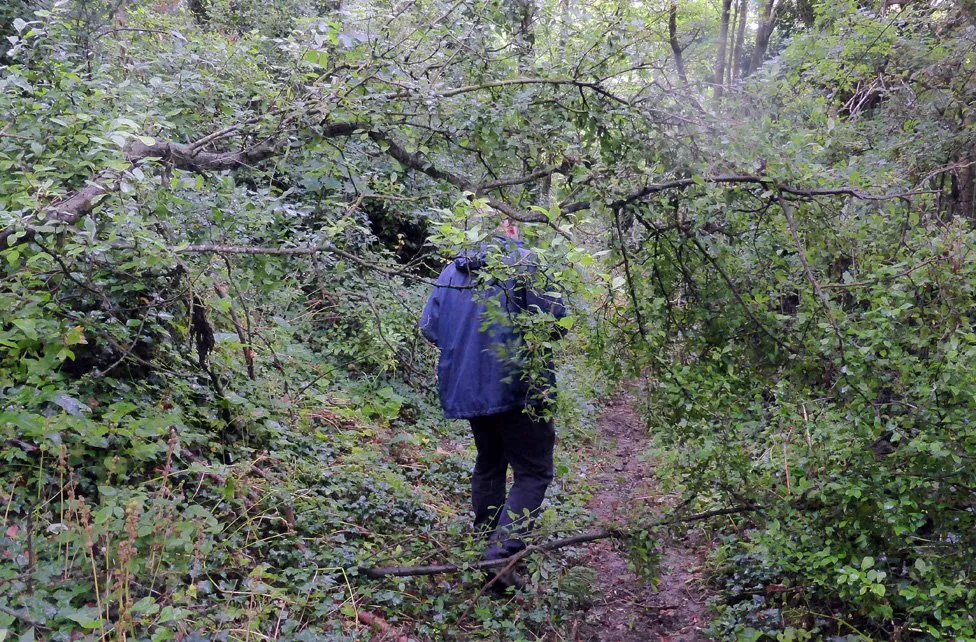Public rights of way blocked in 32,000 places
Walkers wanting to enjoy footpaths across the British countryside are being blocked or obstructed in nearly 32,000 places across England and Wales.
But they are fighting back, with one rambler even training as a lawyer to force councils to keep the way clear.
A BBC investigation found councils which have responsibility for footpaths had 4,000 more access issues on public rights of way in 2023 than in 2022.
Campaigners said this showed a "growing abuse and neglect" of the path network.
Local authorities said "funding constraints" limited what they can do.
In Cornwall, which has 2,796 miles (4,500km) of public rights of way, Lucy Wilson is one walker determined to make sure countryside footpaths are kept useable.
Campaigner Lucy Wilson has trained as a lawyer in order to challenge her local council's work on access
Standing on a footpath tucked into the folds of the Tamar Valley, Mrs Wilson points up at a sheer muddy bank, topped with a thicket of brambles.
"That's where the path should go," she says. "You can't see anything. It's just gone."
Her finger traces the registered right of way on a map on her phone. We scramble up the bank but have no chance of forcing our way past the thorns.
She explains that people have been trying for five years to get Cornwall Council to make this path accessible.
"The council doesn't have the resources - but that's not an excuse, because they have a statutory duty to do this. It's not a choice," she explains.
All landowners have a duty to keep paths clear but the ultimate responsibility rests with the local highways authority - usually the local county or unitary council or national park authority.
The BBC asked 118 local authorities how many obstacles, blockages and inaccessible footpaths they had in their areas.
Meanwhile, across England and Wales, The Ramblers - Britain's walking charity - say they are coming across similar problems - but the true scale of blocked and obstructed footpaths has so far remained unknown.
So the BBC used Environmental Information Regulations to ask 118 local councils outside of London and national park authorities how many blockages and obstructions were recorded at the end of 2022 and on a specific day - 31 October 2023.
Seventy-three authorities were able to provide the data, with 31,816 obstructions - ranging from overgrown vegetation to deliberately fenced-off paths - recorded on 31 October, an increase from 27,696 at the end of 2022.
https://www.bbc.co.uk/news/science-environment-67937253




